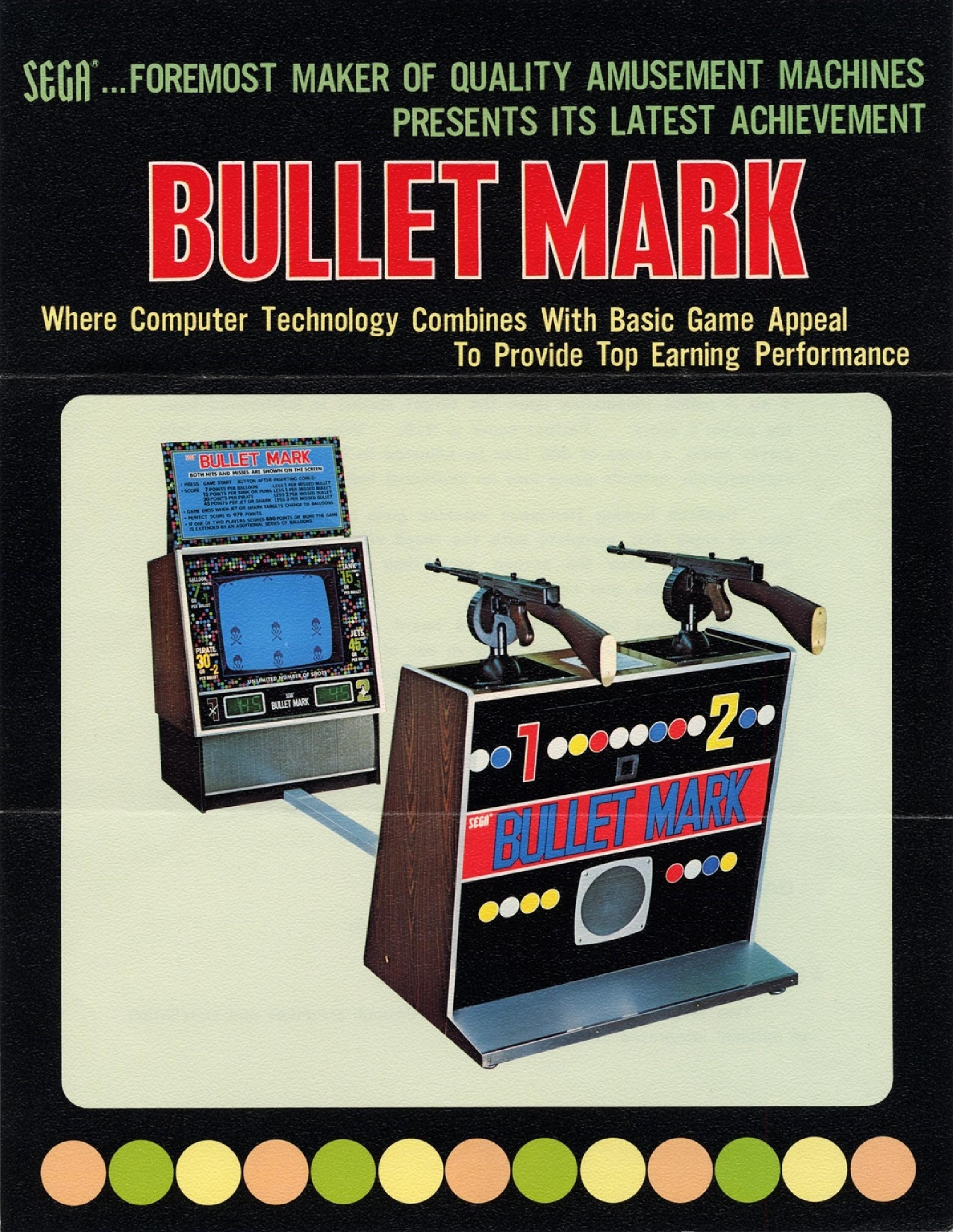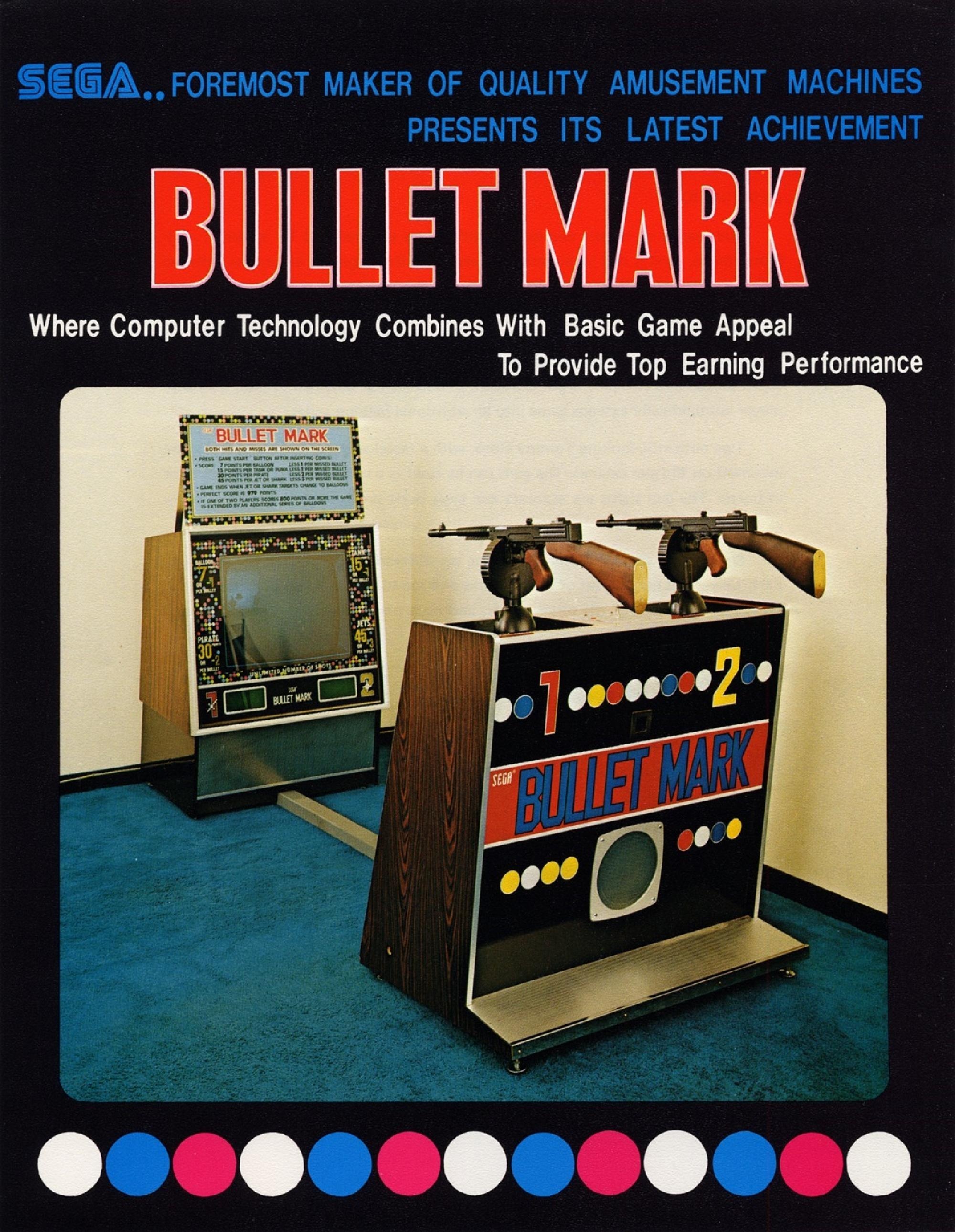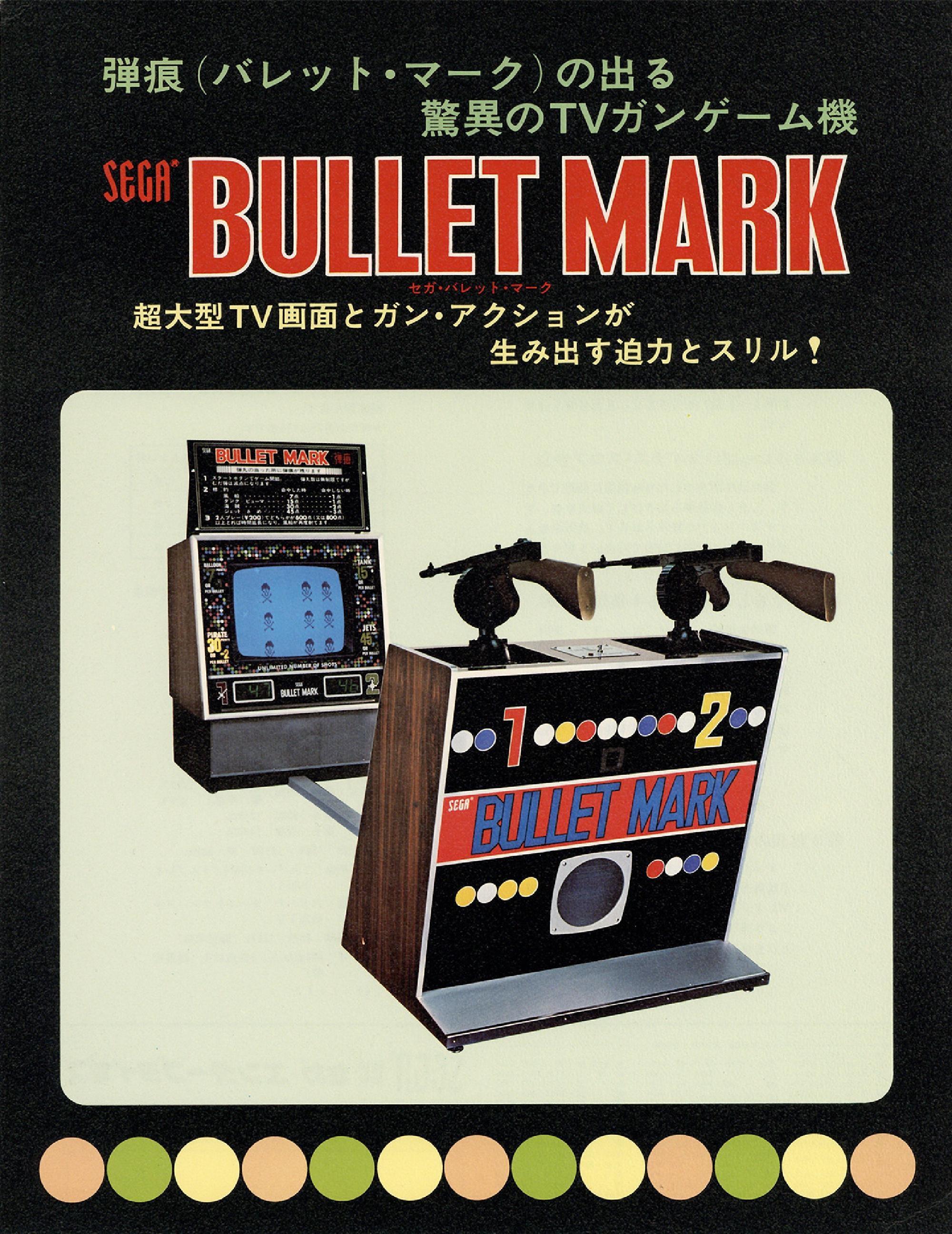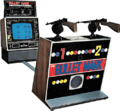Bullet Mark
From Sega Retro

| |||||||||||||||||

| |||||||||||||||||
| Bullet Mark | |||||||||||||||||
|---|---|---|---|---|---|---|---|---|---|---|---|---|---|---|---|---|---|
| System(s): Discrete logic arcade | |||||||||||||||||
| Publisher: Sega | |||||||||||||||||
| Developer: Sega | |||||||||||||||||
| Genre: Shoot-'em-up | |||||||||||||||||
| Number of players: 2 | |||||||||||||||||
|
This teeny-tiny article needs some work. You can help us by expanding it.
Bullet Mark (バレットマーク) is a 1975 discrete logic game by Sega with twin Tommy Guns. It is similar to Sega's earlier 1974 game Balloon Gun, but with a wider variety of targets to shoot. Like Balloon Gun, it was a first-person light-gun shooter with two-player co-op gameplay.
Bullet Mark was Sega's first product to be manufactured in the United States,[6] being built at the Sega of America factory in Redondo Beach, California.[4] In the United States, it sold 10 arcade units in 1975 and 200 arcade units in early 1976, for a total of 210 arcade units sold by early 1976.[7]
Contents
Gameplay
The guns have a recoil effect and can be fired as a single shot or in a short burst. Four series of targets appear sequentially on an oversized TV screen: balloons (worth 7 points), tanks (15 points), pirates (30 points) and aircraft (45 points). A perfect score is 979. Game time adjustable from 60 to 140 seconds. When played as a two-player game, a score of 800 (adjustable to 600 depending on the operator) by either player automatically extends the game into an additional balloon series.
Specifications
Dimensions
- Mass: 152kg
Promotional material
Physical scans
Photo gallery
References
- ↑ 1977 Sega Price List, page 5
- ↑ http://sega-interactive.co.jp/special/history/title/bulletmark.html (Wayback Machine: 2016-04-30 05:33)
- ↑ File:CashBox US 1978-03-25.pdf, page 76
- ↑ 4.0 4.1 Cash Box, "November 29, 1975" (US; 1975-11-29), page 50
- ↑ Amusement Trade Fair - Colour, British Movietone, February 8, 1976
- ↑ Cash Box, "November 29, 1975" (US; 1975-11-29), page 51
- ↑ https://archive.org/details/VideogamesInTheBeginningRalphH.Baer/page/n33/mode/2up








